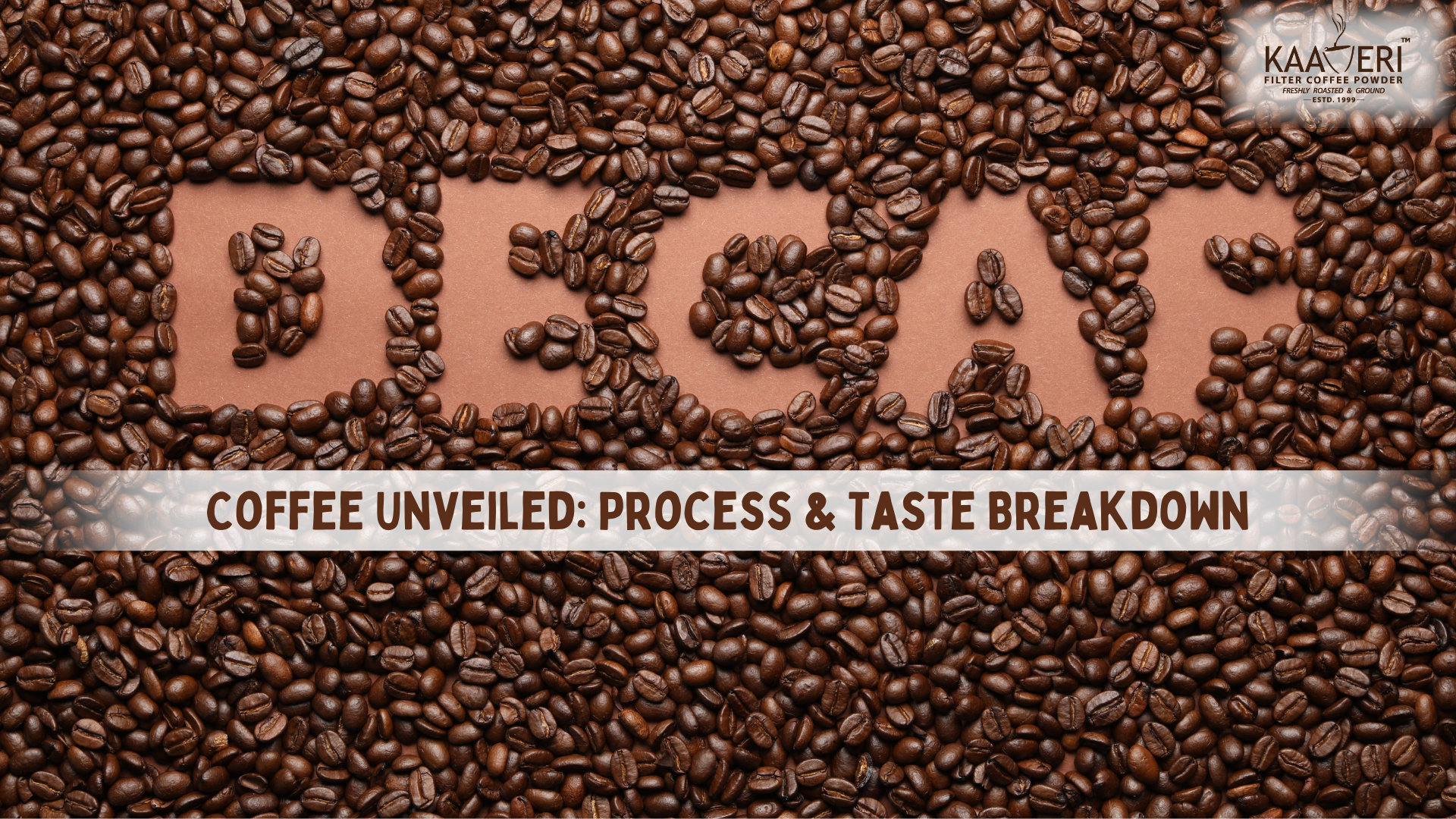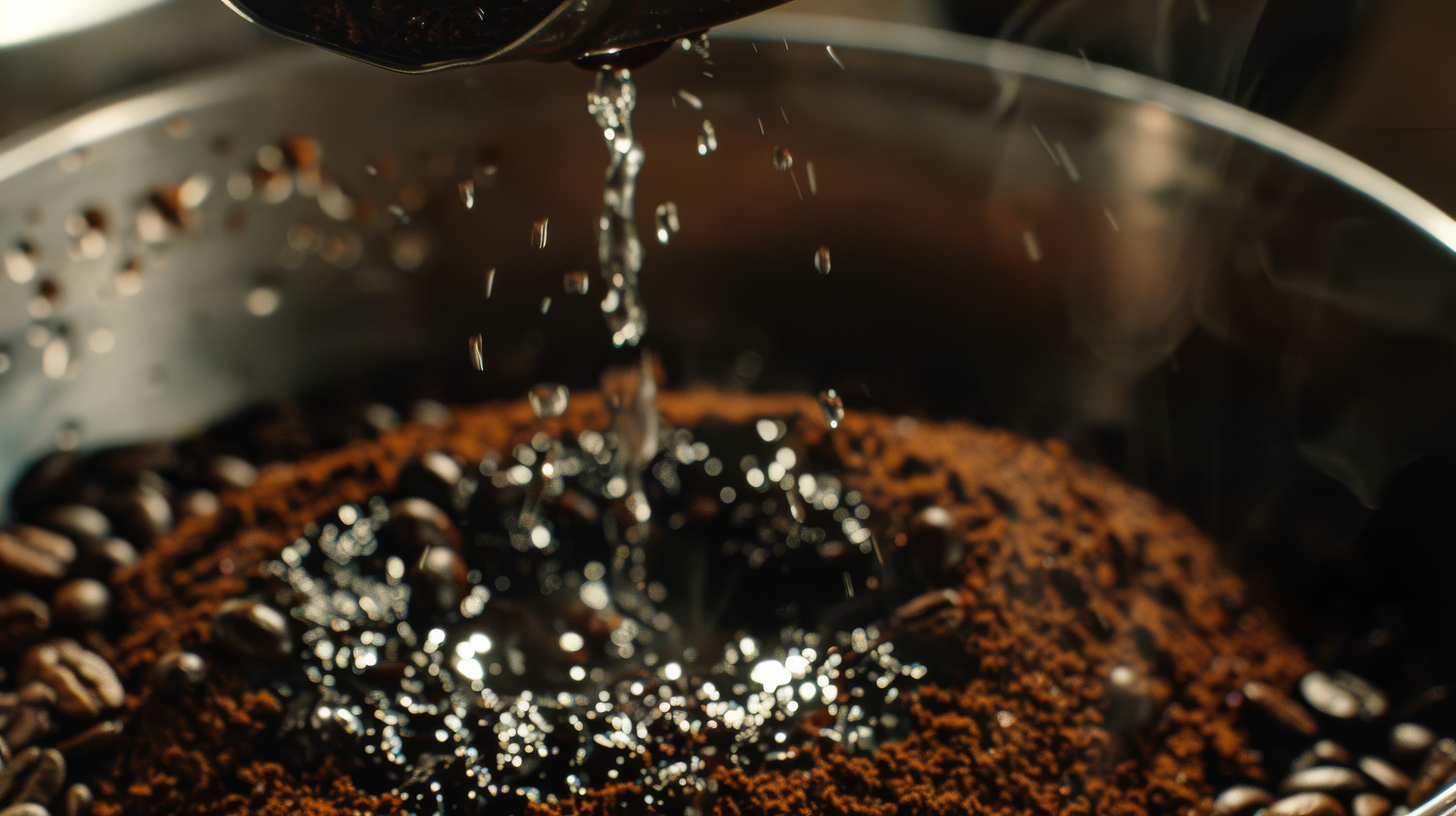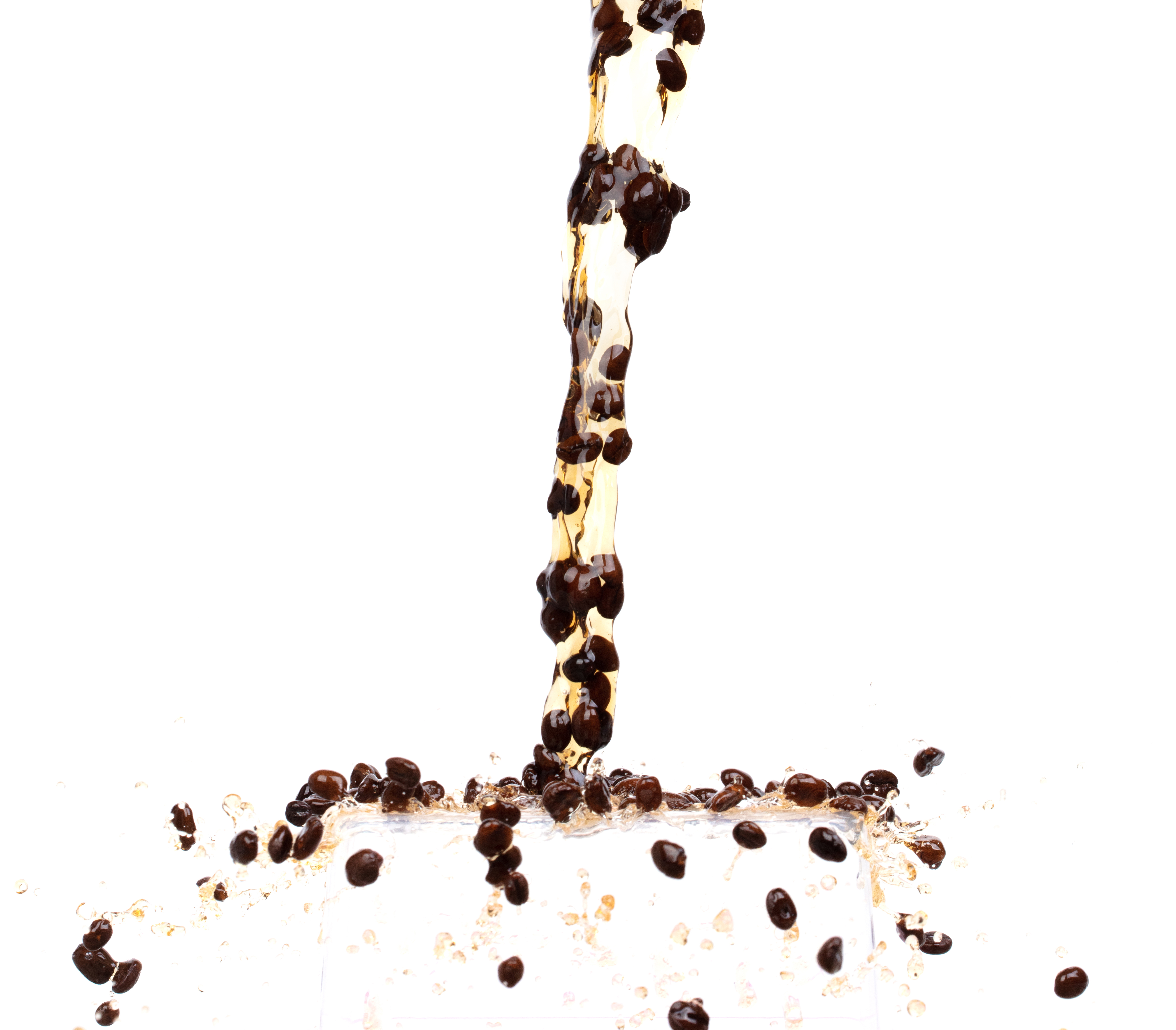
Decaf Coffee Unveiled: Process & Taste Breakdown
| Table of Contents | |
| 1. Introduction to Decaf Coffee | |
| 2. The Decaffeination Process | |
| 3. Does decaf taste different? | |
| 4. Common Myths About Decaf Coffee | |
| 5. Conclusion |
Introduction to Decaf Coffee
For those who love coffee but want to avoid caffeine, decaf offers the perfect solution. Made from beans with most of the caffeine removed, it allows you to enjoy coffee’s rich flavour without the jitters or disrupting your sleep. Ideal for caffeine-sensitive individuals or those looking for an anytime brew, decaf lets you savour coffee without the buzz.

The Decaffeination Process
Decaf coffee was first introduced over 100 years ago, providing a decaffeinated option for coffee drinkers worldwide.
Several methods are used to remove caffeine from coffee beans, each with its own advantages:
Swiss Water Process: A chemical-free method that uses water and osmosis to decaffeinate the beans while maintaining their natural flavour.

Carbon Dioxide Process: This method uses CO₂ to extract caffeine, effectively preserving the bean’s flavour profile.

Direct Solvent Method: Solvents, like methylene chloride or ethyl acetate, are applied directly to the beans to dissolve and remove caffeine.

Indirect Solvent Method: Beans are first soaked in water, and then solvents are used to remove the caffeine from the water, preserving more of the bean’s natural oils.

Does Decaf taste different?
While decaf coffee may have slight flavour differences due to the decaffeination process, it generally retains much of the original coffee’s richness and aroma. The specific methods used to remove caffeine can impact the taste, but modern processes ensure that decaf coffee closely mirrors the flavour of regular coffee.

Common Myths About Decaf Coffee
Is Decaf coffee completely caffeine-free?
No, decaf coffee still contains trace amounts of caffeine, but it’s significantly lower than regular coffee.
Does Decaf coffee have fewer nutrients?
Decaf retains most of the beneficial nutrients and antioxidants found in regular coffee.
Is Decaf Coffee as Good as Regular Coffee?
Yes, with modern decaffeination methods, decaf can taste just as flavorful as regular coffee, offering a satisfying alternative.
Conclusion
The future of coffee is promising, with advancements in technology focusing on improving flavor retention and overall quality. For those seeking to enjoy a rich and authentic coffee experience, Kaaveri Coffee offers premium coffee powder and decoctions that deliver the same robust flavors and benefits as traditional brews. By prioritizing quality and authenticity, Kaaveri Coffee ensures that every cup provides a satisfying and memorable experience for coffee enthusiasts.
FAQS
1. Does decaf coffee still contain the same nutrients as regular coffee?
Yes, decaf coffee retains most of the beneficial nutrients and antioxidants found in regular coffee, including polyphenols, which have various health benefits.
2. Is decaf coffee good for people sensitive to caffeine?
Yes, decaf coffee is an excellent choice for individuals who are sensitive to caffeine or want to avoid its stimulating effects, allowing them to enjoy coffee at any time of day.
3. Why should I choose decaf coffee?
Decaf coffee is perfect for those who enjoy the taste of coffee but want to avoid caffeine’s stimulatory effects. It’s also a great option for late-night coffee drinkers or individuals with caffeine sensitivity.
4. What is decaf coffee?
Decaf coffee is coffee made from beans that have had most of their caffeine removed. It allows you to enjoy the rich taste of coffee without the stimulating effects of caffeine.
5. Is decaf coffee completely caffeine-free?
No, decaf coffee still contains trace amounts of caffeine, but significantly less than regular coffee. It’s a great option for those who want to reduce their caffeine intake without giving up coffee altogether.

